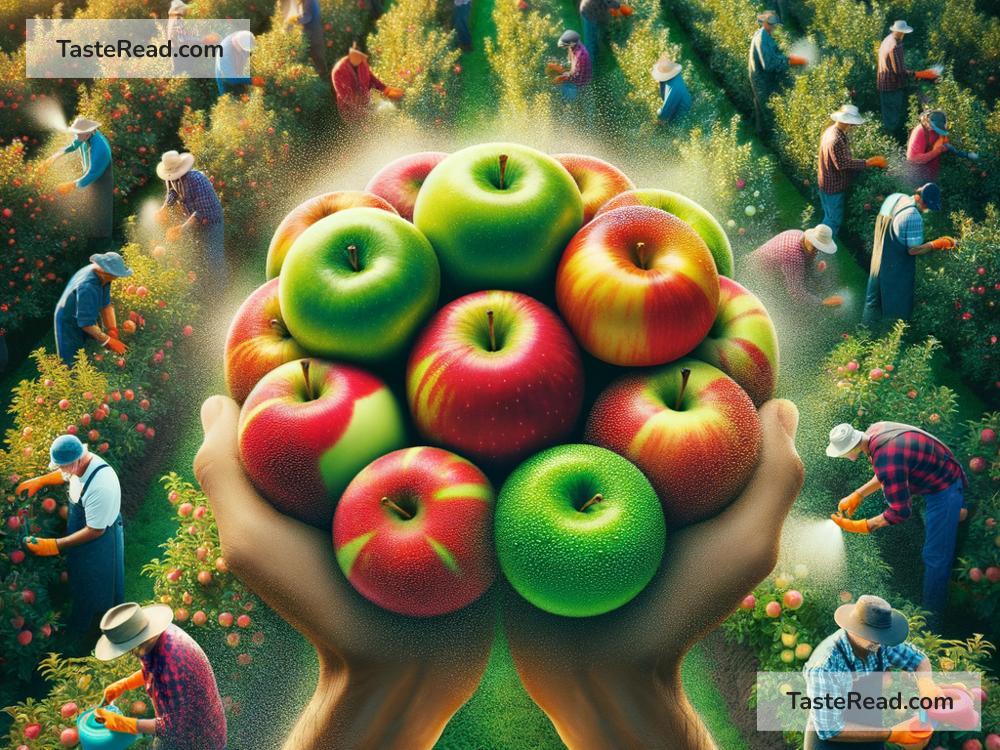The Impact of Pesticides on Fruit Taste: What You Should Know
Have you ever wondered why some fruits taste sweeter, juicier, or fresher than others? Fruit taste depends on a mix of factors like soil quality, climate, farming techniques, and—believe it or not—the use of pesticides. Pesticides are chemicals used by farmers to protect crops from insects, weeds, and diseases, ensuring that fruit is healthy and looks appealing on grocery store shelves. However, these chemicals can influence the way fruit grows and, ultimately, how it tastes. In this blog, we’ll explore how pesticides can affect fruit flavors and why this matters to both farmers and consumers.
What Are Pesticides and Why Are They Used?
Pesticides are substances used by farmers to keep harmful pests and plant diseases away from crops. Without pesticides, insects like aphids and caterpillars could ruin orchards, fungal infections could destroy yields, and weeds could steal vital nutrients from fruit trees. By using pesticides, farmers can produce larger quantities of fruit, making it easier to feed communities and maintain a stable income.
The problem, though, is that pesticides don’t just affect pests. They can also change the way fruits develop, which can ultimately impact their texture, aroma, and flavor.
How Pesticides Affect Fruit Growth
Fruits are living, growing organisms that rely on nutrients from the soil, water, and sunlight to develop their unique flavors. During this process, many chemical reactions take place within the fruit—reactions that create sugars, acids, and aromatic compounds. These are the substances that determine whether a strawberry is sweet or tangy, or whether a peach smells heavenly or dull.
When pesticides enter this delicate growth process, they can disrupt it in subtle ways. For example:
-
Chemical Residues Can Change Flavor Development: Some pesticides leave tiny chemical residues on the fruit. These residues may slow down or interfere with the fruit’s natural ability to create sugars or balance its acidity. Fruits exposed to pesticides may develop slightly altered flavor profiles, sometimes tasting bland or less vibrant than their organic counterparts.
-
Impact on Soil Quality: Pesticides applied to the crops also affect the soil. Healthy soil supports the growth of flavorful fruit by preserving beneficial bacteria and fungi that improve nutrient absorption. But when pesticides seep into the soil, they may damage this balance, possibly leading to fruit that has less flavor complexity.
-
Stress on Plants: Pesticides are designed to kill or repel organisms, but they can also place stress on the very plants they protect. When plants are exposed to high levels of pesticides, they may focus more energy on surviving rather than producing high-quality fruit. This can result in fruit that’s visually appealing but lacks the rich tastes you expect.
The Taste Test: Organic vs. Conventional Fruit
Have you ever compared the taste of organic fruit to conventionally grown fruit? Organic fruits are grown without synthetic pesticides, relying instead on natural methods to fight pests—like beneficial insects (ladybugs) or organic pest repellents (neem oil). Because organic fruits often grow in healthier, balanced soil and without chemical interference, many people claim they taste better. Organic fruits may have more intense flavors, fuller aromas, and juicier textures.
Conventional fruits, on the other hand, may look perfect with their shiny skins and uniform shapes, but they don’t always deliver the same depth of taste. Of course, this isn’t true for every fruit—freshness, variety, and ripeness also play huge roles—but pesticides can be a determining factor.
Why Fruit Taste Matters
You may wonder—does taste really matter when it comes to fruit? The answer is yes! Taste is a big deal. Many people eat fruit as a treat or snack, and its flavor is part of the joy it brings. When fruit tastes bland, people may be less inclined to eat it. This could lead to reduced fruit consumption, which is a problem because fruits are packed with vitamins, minerals, and fiber that are essential for a healthy diet.
For farmers, taste can also make or break their business. Fruits that are fresher and tastier tend to sell better, whether in stores or at farmers’ markets. If pesticide use leads to less flavorful fruit over time, the farmer might lose out on customers who prefer organic or locally grown options.
What Can You Do as a Consumer?
As a consumer, you have the power to choose what kind of fruit you want to support. Buying organic fruit is one way to avoid pesticides and potentially enjoy richer flavors—but organic fruit can be more expensive. If organic isn’t in your budget, consider buying from local farmers who may use fewer chemicals or opting for seasonal fruits that are naturally grown in optimal conditions.
It’s also important to wash fruit before eating it. While washing won’t entirely remove pesticide residues, it can help minimize them. And when possible, experiment with different varieties of the same fruit to find ones with the best flavor—sometimes unusual or heirloom varieties can surprise you with superior taste.
Final Thoughts
Pesticides play an important role in modern farming, helping protect crops from harmful pests and allowing farmers to produce enough fruit for everyone. However, they can sometimes impact the taste and quality of fruit, making it less flavorful than it could naturally be. By learning more about how pesticides influence fruit production, we as consumers can make informed choices about the fruit we eat, whether it’s choosing organic, buying local, or simply appreciating the complexity behind every bite.
So next time you reach for a piece of fruit, you’ll know there’s a fascinating story behind its taste—one that includes farmers, growing methods, and even the chemicals used to protect it!


